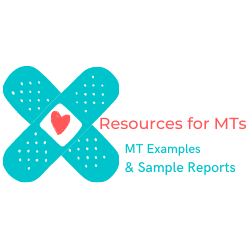DATE OF GASTROENTEROLOGY CONSULTATION: MM/DD/YYYY
CONSULTING PHYSICIAN: John Doe, MD
REQUESTING PHYSICIAN: Jane Doe, MD
REASON FOR CONSULTATION: Abdominal pain with abnormal LFTs.
HISTORY OF PRESENT ILLNESS: The patient is a (XX)-year-old woman who has a history of depression and is status post cholecystectomy about 2 years ago for gallstone disease, who was admitted to the hospital for pain in the right upper quadrant of the abdomen with nausea of 3 days’ duration. Per the patient, she started experiencing severe crampy pain in the right upper quadrant of the abdomen, fairly constant pain grade, 8/10 in severity, radiating to the back and associated with nausea in the last 3 days. She had no fever, no vomiting. Her bowel movements have been regular, which are brown in color. No history of blood in the stools. No history of fever. The patient on admission was found to have a white cell count of 15,400 with LFTs suggestive of cholestasis. Her total bilirubin is 2.4, alkaline phosphatase 182, SGOT 423, and SGPT 1051. Amylase and lipase otherwise are unremarkable. An ultrasound of the abdomen is unremarkable. CT scan of the abdomen and pelvis was done, which showed that the patient is status post cholecystectomy. There is no biliary ductal dilatation seen. No masses in the liver or in the pancreas. The patient was now started on pain medications with intravenous hydration and Protonix and GI consult was placed for further evaluation.
PAST MEDICAL HISTORY: Depression.
PAST SURGICAL HISTORY: Laparoscopic cholecystectomy 2 years ago for gallstone disease.
MEDICATIONS AT HOME: The patient takes Effexor and Depakote.
MEDICATIONS IN THE HOSPITAL: The patient is on Protonix and IV fluids. The home medications were discontinued.
ALLERGIES: NKDA.
SOCIAL HISTORY: The patient smoked at least 2 cigarettes a day for the last 2 years. She drinks at least 2-3 beers every 2-4 weeks. No history of injection drug use.
REVIEW OF SYSTEMS: Negative for the systems.
PHYSICAL EXAMINATION:
GENERAL: The patient is a (XX)-year-old woman who is alert and oriented x3.
VITAL SIGNS: Temperature 97.6 degrees, heart rate 74, blood pressure 114/74, and respirations 18.
HEENT: Pupils equal, round, reacting to light and accommodation. Extraocular muscles are intact. ENT normal. There is no JVD. There is no lymphadenopathy. No thyromegaly.
NECK: Supple.
HEART: First and second heart sounds normally heard. No third sound, no fourth sound, and no murmurs.
LUNGS: Auscultation of the lungs show bilateral vesicular breath sounds.
ABDOMEN: Examination of the abdomen shows a soft and scaphoid abdomen. There is deep tenderness in the right upper quadrant of the abdomen. The liver span is 12 cm. It is tender. There is no splenomegaly. No ascites. Normal peristaltic sounds are heard.
EXTREMITIES: No edema, no rash.
NEUROLOGIC: No focal or neurological deficit.
LABORATORY DATA: The patient had her laboratories, which showed a white cell count of 15,400, hemoglobin 13.4, platelet count 329,000 with MCV 93.6. Electrolyte panel showed sodium 137, potassium 4.6, bicarbonate 27, chloride 104, BUN 16, creatinine 0.7, glucose 99, serum albumin 4.4, total bilirubin 2.4, alkaline phosphatase 182, SGOT 423, and SGPT 1051, amylase 81, lipase 31.
Pregnancy test is negative.
Ultrasound of the abdomen shows no biliary ductal dilatation. CT scan of the abdomen and the pelvis shows the patient is status post cholecystectomy. No biliary dilatation. No mass in the abdomen.
ASSESSMENT AND PLAN:
1. Abdominal pain with cholestatic hepatitis, rule out viral hepatitis, autoimmune hepatitis, hemochromatosis, Wilson disease, alpha-1 antitrypsin deficiency, drug-induced hepatitis, ischemic hepatitis, retained stone in the common bile duct. The patient is scheduled to have MRCP of the bile duct today. Also, all the laboratories have been ordered which are pending at this time. We are going to closely follow up with her laboratories and MRI of the abdomen, and further recommendations will be made thereafter. The patient can be started on clear liquid diet at this time and the diet can be advanced as tolerated. Monitor LFTs closely at this time.
2. History of depression. Hold all home medications at this time.
Thank you for allowing us to participate in the patient’s care.
